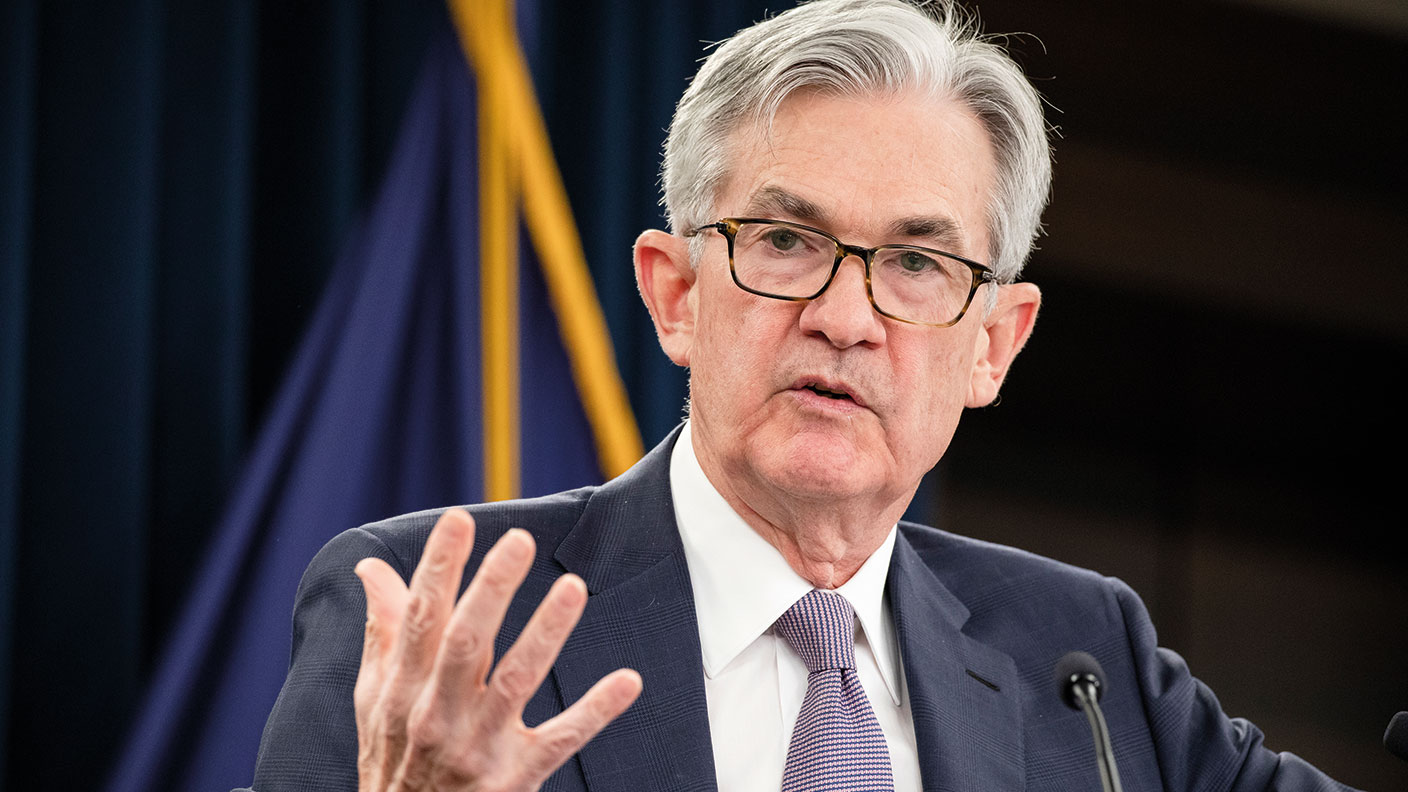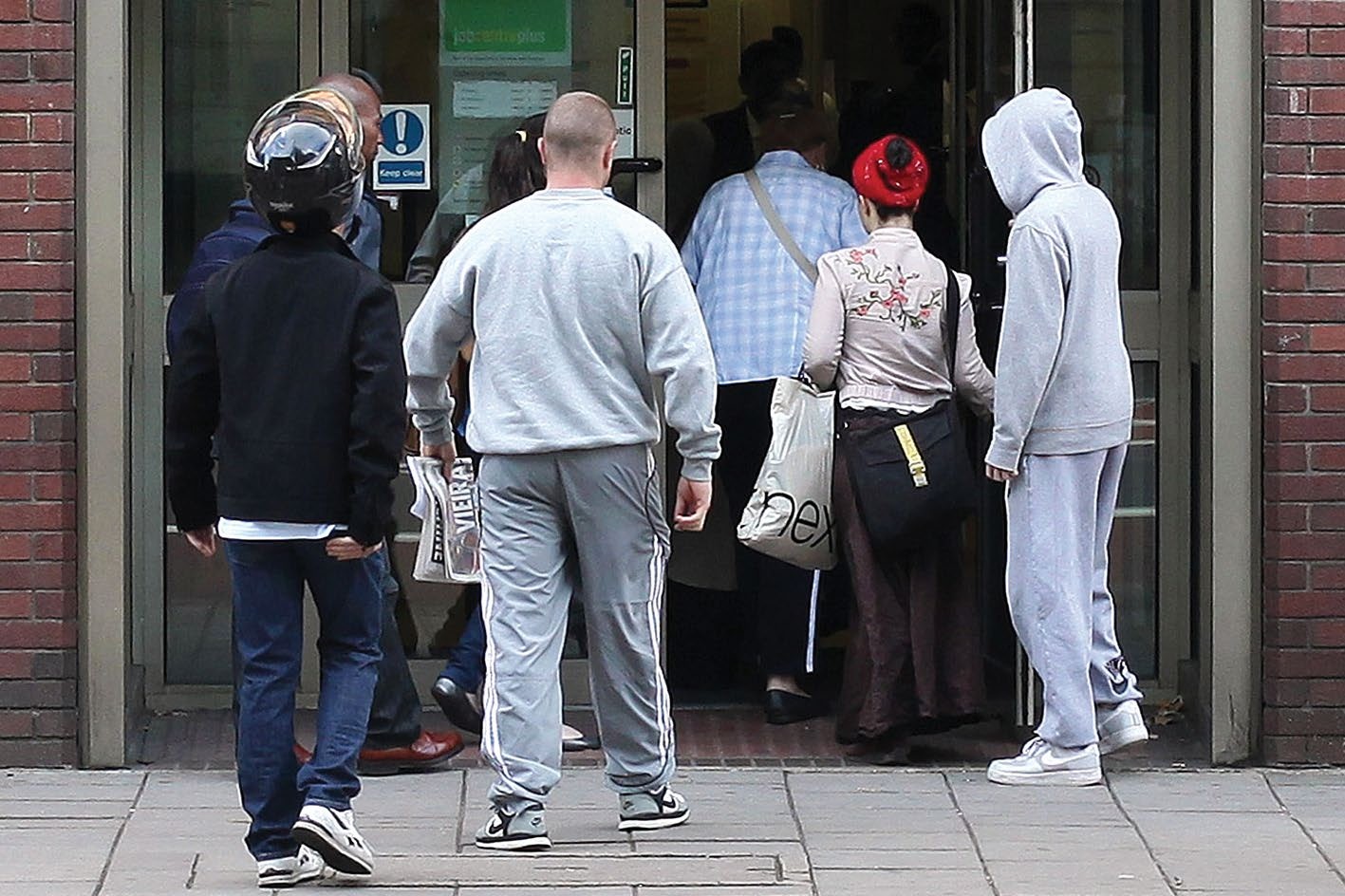Jerome Powell’s pivotal moment in monetary policy history
The Federal Reserve – America's central bank – has said that its inflation target of 2% will now be a long-term average, rather than a rate to be hit at all times.


Get the latest financial news, insights and expert analysis from our award-winning MoneyWeek team, to help you understand what really matters when it comes to your finances.
You are now subscribed
Your newsletter sign-up was successful
Want to add more newsletters?
Jerome Powell, the chair of the US Federal Reserve, has just presided over a “pivotal moment” in monetary-policy history, says John Authers on Bloomberg. Last week, Powell announced that the central bank’s inflation target of 2% will now be a long-term average, rather than the rate that the Fed is aiming to hit at all times. And it will no longer tighten policy when employment is above what economists thinks is the maximum level the economy can take without overheating, unless it sees other signs of inflationary pressures.
For now, the idea that the Fed “will let inflation go a bit above 2% if necessary sounds like wishful thinking”. In this deflationary environment, conventional monetary policy is proving useless and “there was no detail on how the Fed will get inflation above 2% and keep it there”. Yet for all that, it feels as if Powell is ending “four decades of orthodoxy since Paul Volcker took over the Fed and showed he was prepared to raise rates even if it crushed employment”.
A missed chance to be radical
Not so fast, says The Economist. It’s true that these changes may be “the most consequential adjustment to the conduct of monetary policy since the early 1980s”, but for now they look “disappointingly incremental” rather than “transformative”. The Fed has restored jobs as an equal priority alongside prices, but it has “stopped short of committing itself to a more aggressively reflationary framework” that would allow inflation to rise more “in pursuit of full employment”. With interest rates already at zero, Powell’s new strategy could amount to “little more than a promise not to counteract any government efforts to boost growth using fiscal stimulus”. Given “the bleak outlook for the American economy” and the “low risk of embracing a more radical overhaul”, this “feels like an opportunity missed”.
Try 6 free issues of MoneyWeek today
Get unparalleled financial insight, analysis and expert opinion you can profit from.

Sign up to Money Morning
Don't miss the latest investment and personal finances news, market analysis, plus money-saving tips with our free twice-daily newsletter
Don't miss the latest investment and personal finances news, market analysis, plus money-saving tips with our free twice-daily newsletter
Legacy of instability
The central bank wasn’t going to raise rates in the middle of a global recession, so the immediate impact is modest, agrees Swaha Pattanaik on Breakingviews. But “the new framework will outlast the pandemic”. Crucially, “other central banks will follow where the Fed leads” – and the way that this is leading is “ultra-easy policy more of the time”.
For three decades, monetary policymakers have treated stable price inflation as “their best contribution to economic prosperity”. Yet during that time, expansions have been more likely to end in “episodes of financial instability rather than runaway inflation”, as Powell himself acknowledged in his speech. This will turn out be the “Achilles heel” of the Fed’s new approach. “Protracted periods of extremely low interest rates and easy money imply more financial-market booms and busts.”
Get the latest financial news, insights and expert analysis from our award-winning MoneyWeek team, to help you understand what really matters when it comes to your finances.

Cris Sholt Heaton is the contributing editor for MoneyWeek.
He is an investment analyst and writer who has been contributing to MoneyWeek since 2006 and was managing editor of the magazine between 2016 and 2018. He is experienced in covering international investing, believing many investors still focus too much on their home markets and that it pays to take advantage of all the opportunities the world offers.
He often writes about Asian equities, international income and global asset allocation.
-
 Pensioners ‘running down larger pots’ to avoid inheritance tax as rule change looms
Pensioners ‘running down larger pots’ to avoid inheritance tax as rule change loomsChanges to inheritance tax (IHT) rules for unused pension pots from April 2027 could trigger an ‘exodus of large defined contribution pension pots’, as retirees spend their savings rather than leave their loved ones with an IHT bill.
-
 Why do experts think emerging markets will outperform?
Why do experts think emerging markets will outperform?Emerging markets were one of the top-performing themes of 2025, but they could have further to run as global investors diversify
-
 UK small-cap stocks ‘are ready to run’
UK small-cap stocks ‘are ready to run’Opinion UK small-cap stocks could be set for a multi-year bull market, with recent strong performance outstripping the large-cap indices
-
 The scourge of youth unemployment in Britain
The scourge of youth unemployment in BritainYouth unemployment in Britain is the worst it’s been for more than a decade. Something dramatic seems to have changed in the labour markets. What is it?
-
 In defence of GDP, the much-maligned measure of growth
In defence of GDP, the much-maligned measure of growthGDP doesn’t measure what we should care about, say critics. Is that true?
-
 Reach for the stars to boost Britain's space industry
Reach for the stars to boost Britain's space industryopinion We can’t afford to neglect Britain's space industry. Unfortunately, the government is taking completely the wrong approach, says Matthew Lynn
-
 "Botched" Brexit: should Britain rejoin the EU?
"Botched" Brexit: should Britain rejoin the EU?Brexit did not go perfectly nor disastrously. It’s not worth continuing the fight over the issue, says Julian Jessop
-
 'AI is the real deal – it will change our world in more ways than we can imagine'
'AI is the real deal – it will change our world in more ways than we can imagine'Interview Rob Arnott of Research Affiliates talks to Andrew Van Sickle about the AI bubble, the impact of tariffs on inflation and the outlook for gold and China
-
 Tony Blair's terrible legacy sees Britain still suffering
Tony Blair's terrible legacy sees Britain still sufferingOpinion Max King highlights ten ways in which Tony Blair's government sowed the seeds of Britain’s subsequent poor performance and many of its current problems
-
 How a dovish Federal Reserve could affect you
How a dovish Federal Reserve could affect youTrump’s pick for the US Federal Reserve is not so much of a yes-man as his rival, but interest rates will still come down quickly, says Cris Sholto Heaton